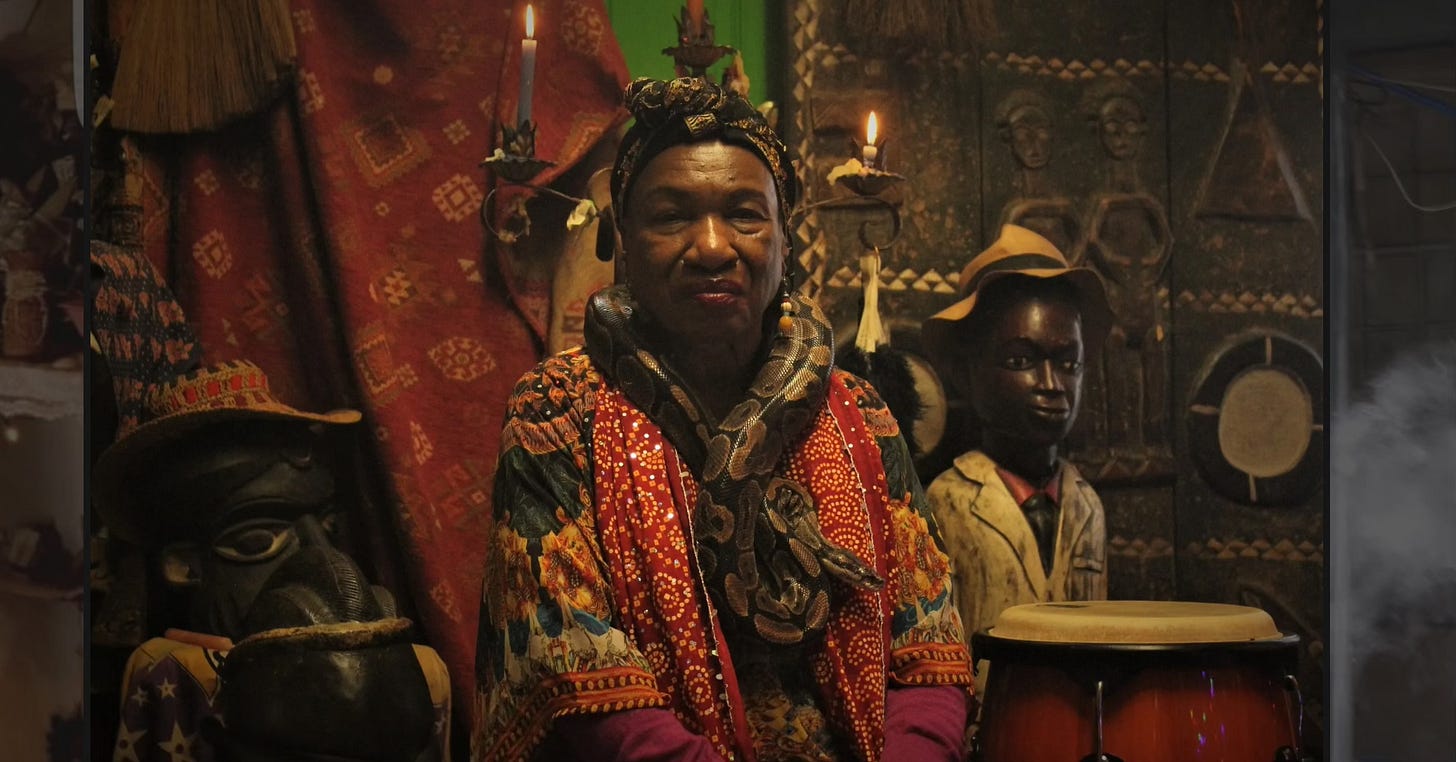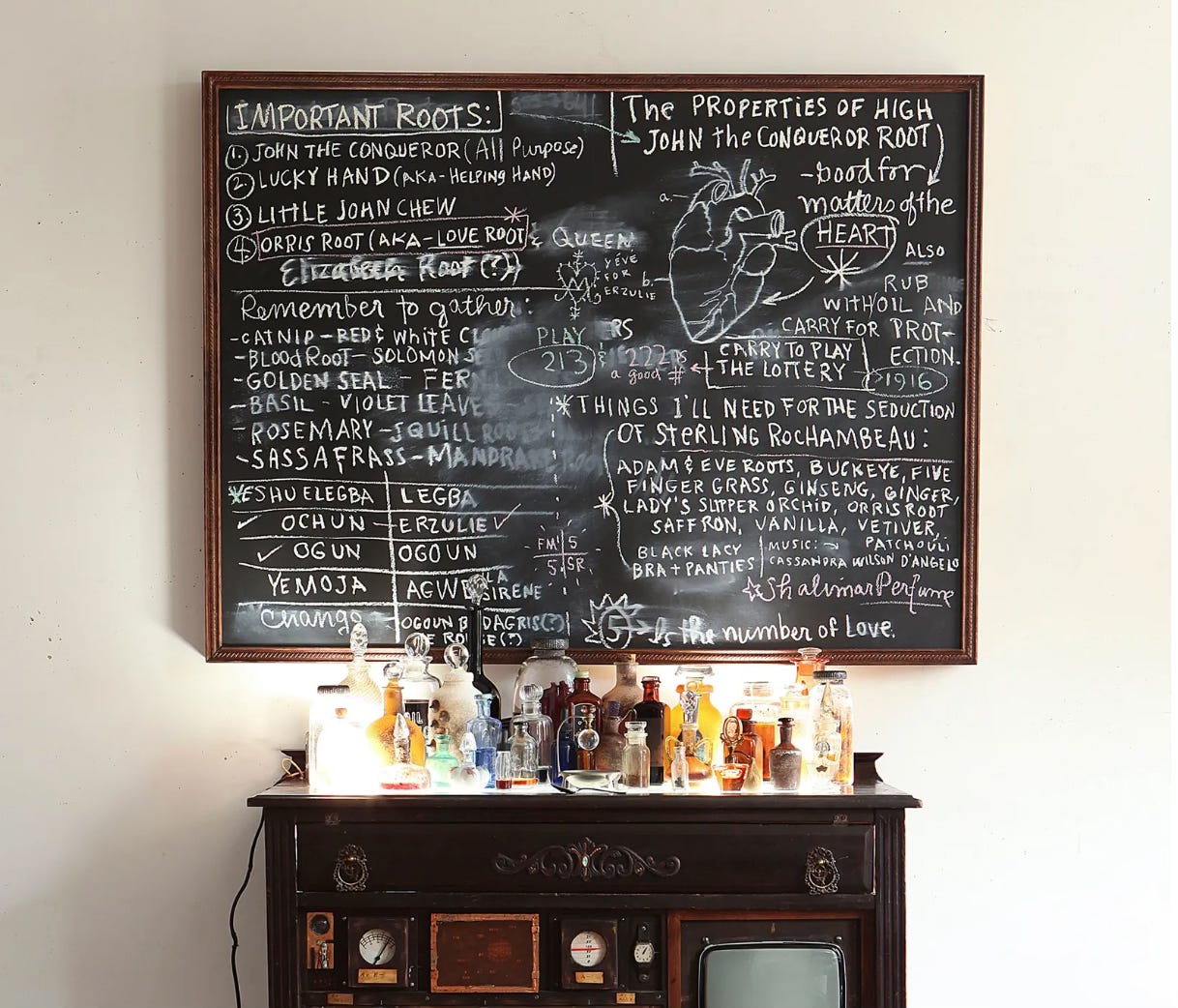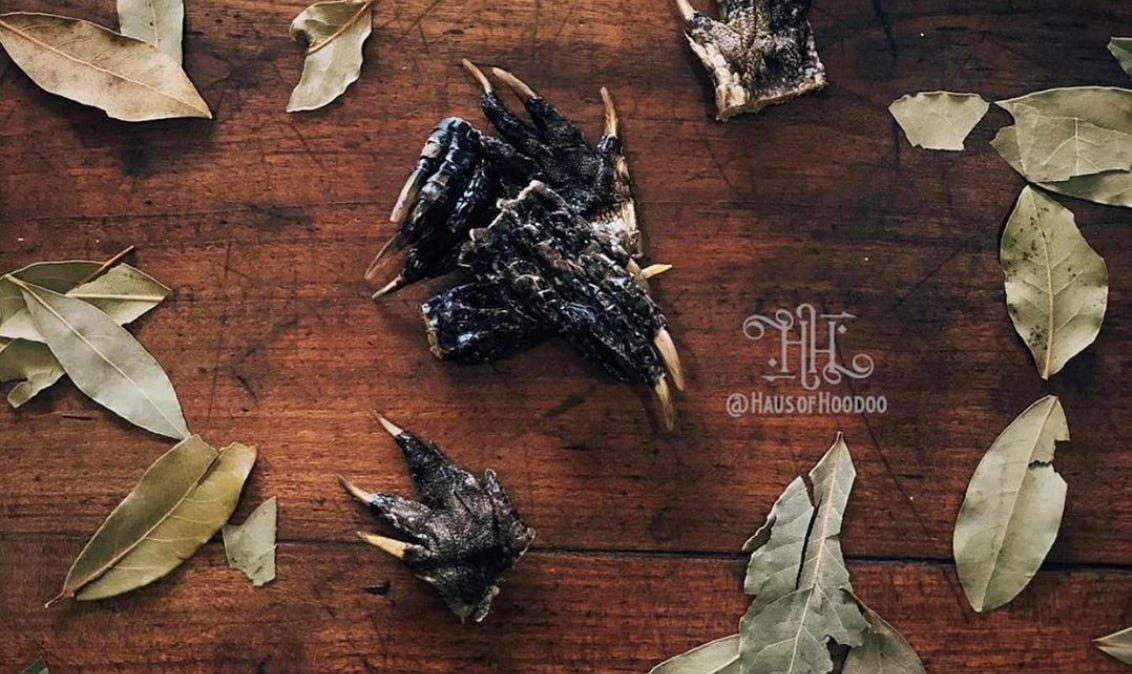Hoodoo and Voodoo are not the same
Nor are they "demonic"
There’s no devil in Voodoo. Yet the media’s representation, fueled by white supremacist ideology, demonizes the spiritual practices native to Black Americans. Unless, of course, it’s the magical negro. (A supporting character in film/TV that possesses spiritual powers or wisdom that aids/enlightens the white protagonist)
On the other end of the spectrum, Voodoo has been commercialized and sensationalized to increase tourism in New Orleans. There are countless stores and tours in the French Quarter that advertise Voodoo, ghost, and vampire stories as if this isn’t a very real religion.
New Orleans Voodoo, is a unique syncretic religion that developed in New Orleans and the surrounding areas during the 18th and 19th centuries. Emerging as a blend of West African Vodun with Haitian Vodou it was practiced openly under the cloak of Catholicism.
An integral part of the spiritual landscape in New Orleans, some key aspects involve
Ancestor worship
Charms and amulets for protection
Rituals and ceremonies involing singing, dancing and prayer
Belief in a supreme creator and lesser spirits
Incorporation of Catholic saints and worship practices
Involves an initiation process
Priestess Miriam offers a more thorough definition here.
Not nearly as popular, but equally important as Marie Laveau, is Voodoo Queen Betsey Toledano. A free woman of color who lived in New Orleans during the mid-1800s Betsey was an activist. During a spiritual procession held at her home, the police raided the house and arrested her. She was charged with encouraging the unlawful assemblages of slaves. In court, she pleaded her case and defended her right to practice Voodoo, arguing that it was a religious African institution.
Hoodoo is a Black American folk magic practice that emerged during slavery in the South. Much of the information available about this practice is thanks to the anthropological research and writings of Zora Neale Hurston. She documented hoodoo practices in her essay "Hoodoo in America" and her book "Mules and Men." Her approach of being a participant and observer helped to legitimize Hoodoo as an important aspect of African American culture and folklore. Especially since it’s a oral tradition.
Some key characteristics of Hoodoo:
Focuses on practical magic for healing, protection, and problem-solving
Incorporates elements from African andIndigenous American spiritual practices
Practiced in tandem with Christianity
Practitioners are called rootworkers and conjure doctors
Does not involve initiation
Both Voodoo and Hoodoo are complex and nuanced belief systems/practices that are sacred and native to Black Americans. So yes, magical negroes do exist, but not in the way most were conditioned to believe.




